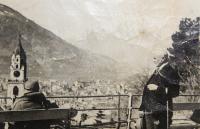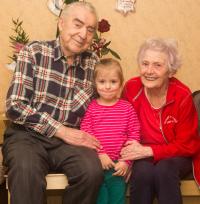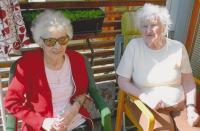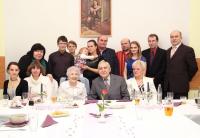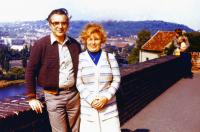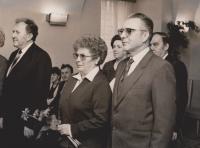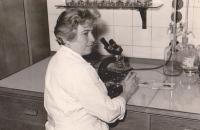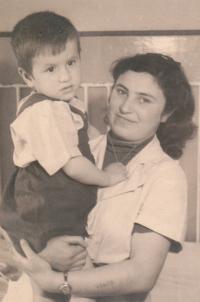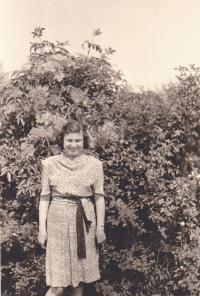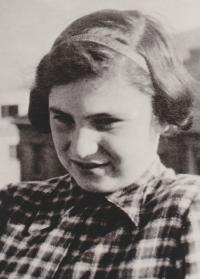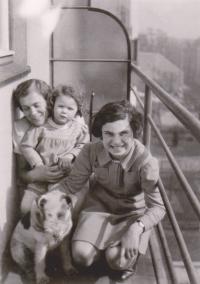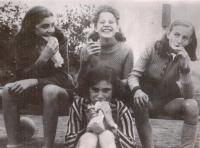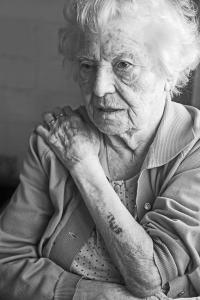Her only guilt was that she was Jewish

Download image
Brigita Bakovská, née Steinová, was born February 17, 1929 in Karlovy Vary. Her father owned a shoe shop and her mother was a housewife. Brigita, nicknamed Gita, had sister Dora who was eight years older. When the Kristallnacht broke out in Karlovy Vary in 1938, their father sent both daughters to Prague and he followed them later. Their mother left the family at that time. Brigita attended school in Prague and her older sister Dora worked for families in Prague in exchange for food and accommodation. The Stein family received an order to board a transport to Terezín in 1941. Brigita was then to leave with a transport for Auschwitz in September 1943, but since she fell ill at that time, she eventually boarded a cattle car train which was dispatched in November of the same year. This has probably saved her life. Her father died in Auschwitz and Brigita decided to apply for work in Hamburg. Due to her swollen feet, she did not pass the selection process for the first time. For the second time Gita managed to pass with help of her friend and she thus got out of Auschwitz. She was injured during the air raids on Hamburg, but she survived. She then had to get from Hamburg to Bergen-Belsen, and she went partly by train and she walked part of the journey there. When she eventually reached the camp together with others, she was completely exhausted. The Germans were already gone, but the situation there was catastrophic. Gita lost her consciousness and she woke up in a hospital bed. Thanks to help of a woman she knew she got on board a train bound for Prague. When she was sixteen years old, her body weight was less than 28 kilograms. When she reached Prague, Brigita decided to fight for her life and with the help of her cousin she was gradually gaining weight and combating tuberculosis. A family of her best girlfriend from Auschwitz eventually accepted her as if she were their own daughter. Due to her lung disease she was unable to have children and she did not manage to complete her studies of medicine, because she had spent too much time bedridden in a sanatorium. Her first husband died of cancer, but with her second husband Emil Pastošek, whom she met on a holiday trip, they have been together for thirty years. Brigita Bakovská published a book of her memories titled ‘Stolen Dreams’ (Ukradené sny) in 2016.
